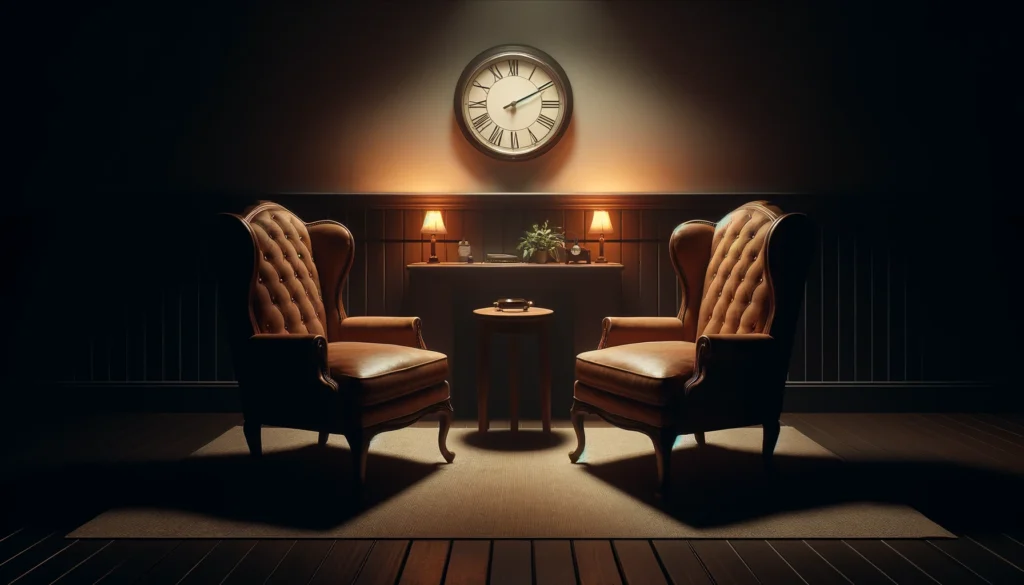Deciding whether or not you want a divorce is one of the most challenging decisions you might face in your life. If you find yourself typing “do I want a divorce quiz” into your search engine, know that you’re not alone in this confusion. As a practicing divorce lawyer in Orlando and Palm Beach areas, I’ve guided many clients through this tough decision-making process.
Recognizing the Signs – How do I know if I want a divorce in Florida?
It’s not unusual to question the state of your marriage. Queries like “How do I know if I want a divorce” or “Do I really want a divorce” are more common than you might think. These questions often arise from deep feelings of discontent or a realization that the relationship isn’t fulfilling your emotional or physical needs anymore.
Initiating the Conversation
Whether it’s figuring out how to tell your spouse you want a divorce or wondering about the next steps if your partner wants a divorce, starting this conversation requires courage and sensitivity. It’s not just about saying “I want a divorce” but about expressing your feelings and reasons thoughtfully, respecting the love and time you’ve shared together.
For those pondering “how to tell my husband I want a divorce” or “how to say I want a divorce to my wife,” consider approaching the topic in a calm environment where you both feel comfortable discussing serious matters. It’s beneficial to approach the conversation with clear reasons, free of blame, to foster an understanding rather than animosity.
Considering Your Options
Before taking any steps, it’s essential to explore all your options. Couples therapy or mediation can be invaluable for some, providing a space to discuss issues that might not have been fully explored. For others, when the decision seems irrevocable, understanding the legalities becomes crucial. Queries like “Should I leave the house if I want a divorce” underline the importance of legal advice early on. It’s vital to know your rights and the potential implications of every action.
How Do I Know I Want a Divorce?
In an article updated on March 15, 2023, by Ysolt Usigan for Woman’s Day, experts from various fields, including matrimonial and family law, clinical psychology, and family therapy, offer insights into recognizing when a marriage might be heading towards its end. The piece highlights that despite appearances, no marriage is without its challenges, and many couples find themselves contemplating divorce at various points. With the national divorce rate showing a decline from 2001 to 2021, the discussion shifts towards identifying clear signs that a marriage may be irreparable.
Experts like Jen Libby, MSW, LCSW, and Dr. Carla Marie Manly pinpoint chronic conflict, stagnation, emotional disconnection, and various forms of abuse as major red flags. The article underscores the devastating effects of constant conflict and the importance of growth within a marriage. Signs of a failing marriage include a lack of sexual intimacy, domestic violence, and effort from both parties. Emotional disconnection and an absence of mutual support further strain marital bonds.
The presence of unrealistic expectations, unwillingness to compromise, and misaligned future goals are also cited as indicators of a troubled marriage. A lack of respect and instances of infidelity are potent signs of a deteriorating relationship. The consensus among the professionals interviewed is that recognizing these signs early and addressing them, whether through divorce or therapy, is crucial for the well-being of both partners.
For a comprehensive understanding and additional context, readers are encouraged to explore the full article on Woman’s Day’s website【source】.
What If I Don’t Want a Divorce?
If you find yourself asking, “What if I don’t want a divorce,” it’s essential to communicate openly with your partner about your feelings and concerns. There may still be a path to reconciliation, but it requires mutual effort and possibly professional support.
Legal Advice Is Key
Regardless of where you stand, consulting with a divorce lawyer early on can provide clarity. Legal advice can guide you through the complexities of divorce, from custody considerations to financial implications. If you’re contemplating steps like leaving your shared home, it’s crucial to understand the legal and financial consequences of such actions.
In Florida, laws specific to divorce, such as the division of property, child support, and alimony, can significantly impact the outcome of your case. Seeking advice from a lawyer who is well-versed in Florida’s legal landscape is imperative for protecting your interests and rights.
Disclaimer: Addressing Violence in Relationships
If you are experiencing violence in your relationship, it is critical to prioritize your safety and the safety of your children above all else. The information presented and steps discussed regarding divorce proceedings, including considerations around leaving your home, must be approached with caution in situations involving violence.
Violence in any form is unacceptable, and there are resources available to help protect you and provide the support you need. We strongly encourage you to reach out to local authorities, a trusted legal advisor who is aware of the complexities of abusive situations, or a dedicated support organization for immediate assistance.
Your safety and well-being are paramount. Legal professionals can also offer guidance on obtaining protective orders or taking other legal actions to ensure your protection during the divorce process. Remember, you are not alone, and help is available.
My Final Thoughts
The decision to pursue a divorce is deeply personal and often fraught with emotion. Whether you’re at the stage of considering a divorce or have already decided, it’s essential to proceed with empathy, both for yourself and your partner. Legal guidance can not only help protect your interests but can also offer a roadmap through this challenging time.
Remember, it’s okay to seek help. Whether it’s through counseling, support groups, or legal advice, you don’t have to navigate this process alone. As a divorce lawyer committed to supporting individuals in the Orlando and Palm Beach areas, I’m here to help you through this challenging period with compassion and expertise.
Frequently Asked Questions About Considering Divorce
Q: Where can I find a “Do I want a divorce quiz” to help me understand my feelings?
A: While a quiz can offer some insights, it’s important to understand that the decision to divorce is deeply personal and complex. Consider professional counseling or a heart-to-heart conversation with your spouse as additional steps to explore your feelings and options.
Q: How do I tell my husband I want a divorce?
A: How to tell my husband that I want a divorce involves preparation and empathy. Choose a calm, private setting, and be honest about your feelings without assigning blame. It’s crucial to express your needs clearly and listen to his perspective as well.
Q: How do I tell my wife I want a divorce?
A: Similar to any difficult conversation, “How to tell my wife I want a divorce” is a question that requires honesty and sensitivity. Explain your feelings and reasons thoughtfully, ensuring you’re both in a supportive environment to discuss such significant matters. Communicating this decision should be done with care. How to say I want a divorce to your wife includes being respectful, preparing for an emotional conversation, and being clear about your intentions.
Q: Do I really want a divorce?
A: If you’re asking, “How do I know if I want a divorce?” it may be time to evaluate the relationship’s core issues. Consider if the problems are solvable with effort from both sides or if parting ways might be the healthier option. How do I know I want a divorce? is a question that often comes down to consistent unhappiness, unresolved conflicts, or fundamental differences that can’t be reconciled. Professional guidance can help in making this decision.
Q: What do I do if my wife wants a divorce but I don’t?
A: When faced with the question, “What if I don’t want a divorce?” Open communication is key. Discuss the reasons behind her decision and see if there’s room for compromise or counseling. Respect her feelings while expressing your own.
Q: How to tell my spouse I want a divorce?
A: Whether it’s how to tell my wife I want a divorce or any partner, approach the conversation with honesty, kindness, and preparedness for a difficult dialogue. It’s one of the most challenging discussions you’ll have, so approach it with the seriousness it deserves.
Q: Should I leave the house if I want a divorce?
A: Answering the question, “Should I leave the house if I want a divorce” involves legal and emotional considerations. It’s advisable to consult with a lawyer to understand the implications before making such a decision, as it could affect the outcome of the divorce proceedings.
More Questions Answered
How Do I (And Should I) Use Chat GPT To Find The Right Divorce Attorney For My Case?
Getting Divorced In Palm Beach Florida? Here’s How It Works.
Love Addiction Part II: What Creates A Love Addict, And What Can Help.
7 Destructive Marriage Behaviors Truly Happy Couples Never Have
Florida Online Divorce – Learn About No-Court Divorce Hearings
Considering Divorce? What You Need To Know Without Considering Divorce
 Reviews
Reviews 
